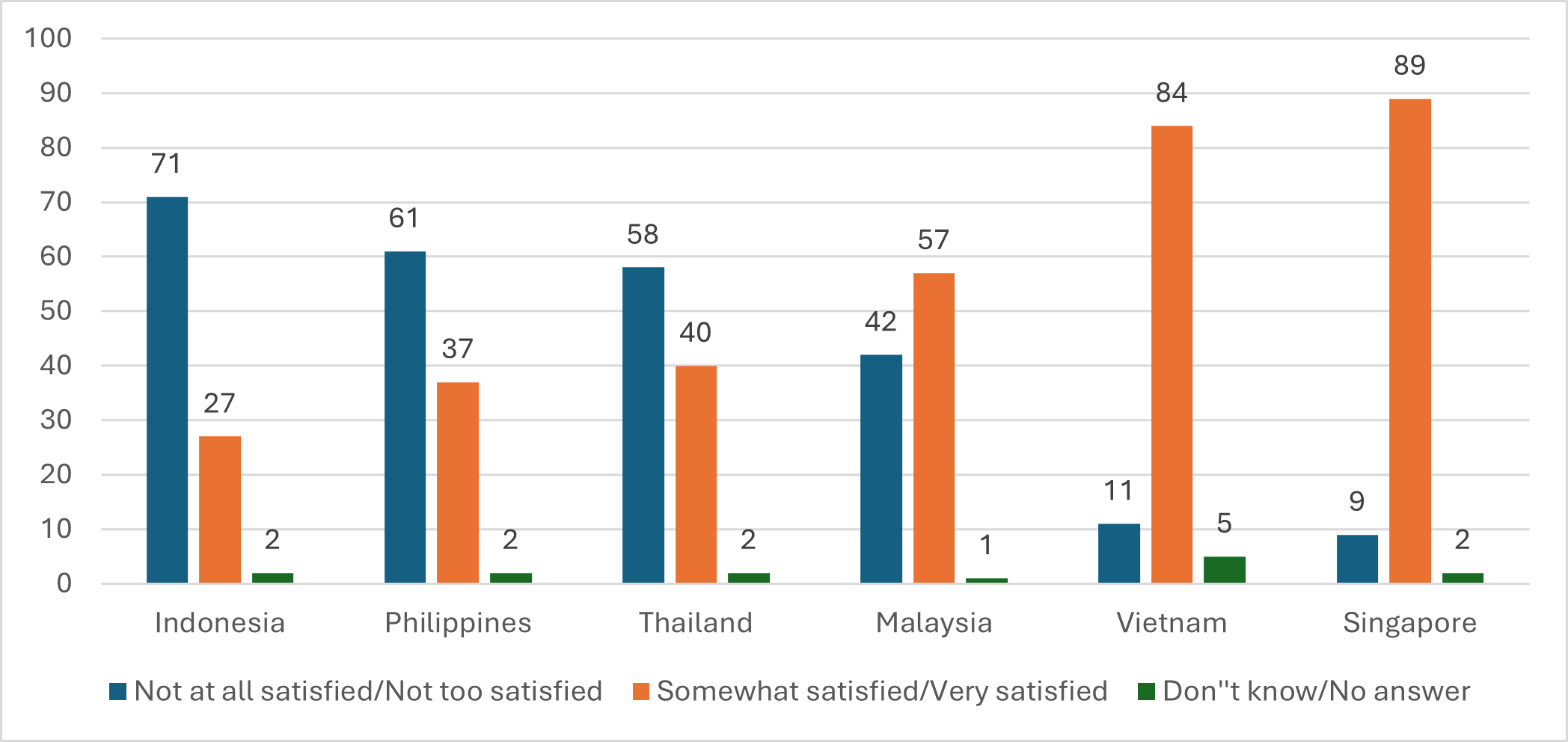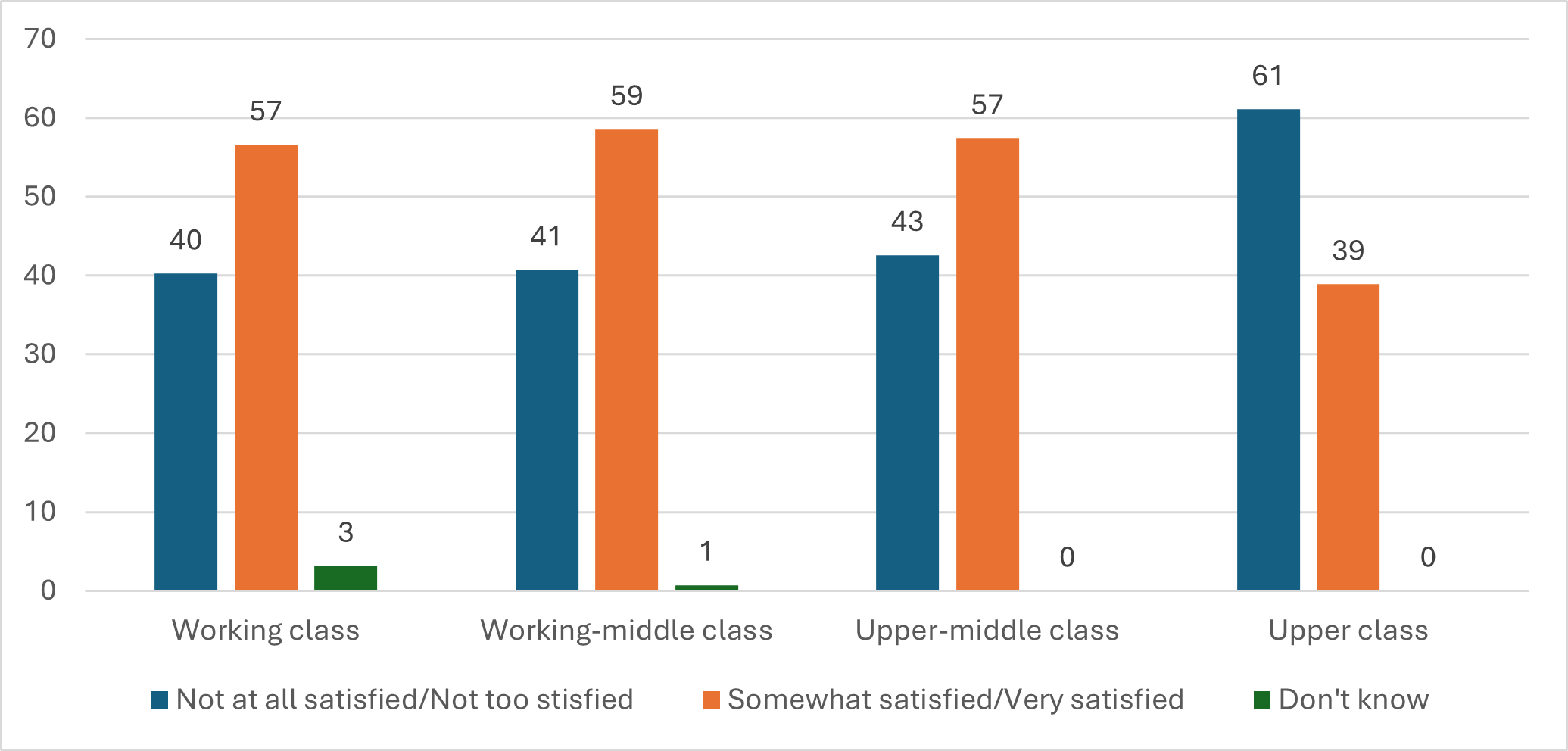Malaysian Youths’ Nuanced Take on Corruption in the System
There are ongoing concerns about high-level corruption in Malaysia. These concerns are valid and warrant further government action. According to an ISEAS -Yusof Ishak Institute survey, however, Malaysian youths appear to have taken these concerns in stride amid growing political stability and economic growth.
On 25 January 2025, around 200 protestors, mostly university students, convened in Kuala Lumpur for an anti-graft rally. 1 Under the Unity Government led by Pakatan Harapan (PH) and headed by Prime Minister Anwar Ibrahim from the reformist Parti Keadilan Rakyat, the public has expressed discontentment over court cases involving well-known politicians. The most notable case is that of former Prime Minister Najib Razak, who is pursuing legal means to move from incarceration to house arrest. Malaysia’s 57th position in the Corruption Perception Index in 2024 showed no progress from 2023, even though it was ranked second after Singapore in Southeast Asia. 2
Despite concerns about corruption, a large proportion of Malaysian youth have a positive outlook on the country’s political system. In January, ISEAS released a report on youth and civic engagement in six Southeast Asian countries which sampled university undergraduates aged between 18 and 24. 3 As seen in Figure 1, 57 percent of the Malaysian respondents were positive about the political system, whereas 42 percent responded that they were “not too satisfied” or “not at all satisfied.” 4 This showed that respondents were split in their views about the way the political system is working. Those who judged the political system negatively may have referred to corruption issues, whereas those who are positive may have looked more at the country’s economy. In the survey, 84 percent of Malaysian respondents were optimistic about the country’s economic future.

Fig. 1: Satisfaction with political system by country. (Graphic by the author, 2025)
To understand the polarisation, the author conducted further studies about perceptions of the political system by socio-economic status [Fig. 2]. According to those additional findings, 61 percent of upper-class Malaysian respondents expressed dissatisfaction with the political system. On the other hand, more than 55 percent of the other classes responded positively. The classification was based on respondents’ own perceptions of their socio-economic status. Because the survey was not followed by qualitative data, we can only suggest that economically less advantaged youth were satisfied with the political system because they were more likely to benefit from various government programs and initiatives, such as the cash assistance or Sumbangan Tunai Rahmah (Rahman Cash Contribution), which saw increased allocation in 2025. 5 Bread-and-butter issues typically rank high when it comes to political perceptions. 6 On the other hand, the upper class, who did not receive any assistance, might have looked at other matters, including the impact of corruption on the nation.

Fig. 2: Perceptions of the political system by socioeconomic status. (Graphic by the author, 2025)
The fight against corruption is ongoing, but Prime Minister Anwar has been accused of being non-committal when it comes to reform. Deputy Prime Minister Zahid Hamidi’s “discharge not amounting to an acquittal” (DNAA) was explained as necessary for a more thorough investigation. 7 But more recently, the Malaysian Anti-Corruption Commission (MACC) detained four individuals linked to former Prime Minister Ismail Sabri Yaakob and seized more than RM100 million in cash. 8 Ismail Sabri is known to be in a different camp from Zahid in the United Malays National Organization. This brings into question whether political stability is prioritised over fighting corruption. Malaysians are calling out Anwar’s inconsistency, 9 and they may have a point after 1Malaysia Development Berhad (1MDB) dropped its US$248 million suit against Najib Razak. 10
The people, like the government, have been less than wholehearted in the fight against corruption. While corruption remains significant, its perceived importance may diminish if the general populace experiences economic and political stability. This is not new in Malaysia. Despite being found guilty in the 1MDB scandal, Najib Razak continues to receive support from different segments of society. 11 In December 2024, some 1500 participated in a counter-rally in defence of Sabah Chief Minister Hajiji Noor, despite him facing allegations of corruption. 12 It is important to note that those who participated in the January 2025 protest did not reflect the collective sentiment of Malaysia’s youth. The turnout of 200 people at the anti-graft rally pales in comparison to other protests, such as the #Lawan protest in 2021, 13 which saw more than 1000 participants, or the two-day Bersih 4 protest in 2015, which saw between 80,000 to 100,000 people attending. 14
The government has taken additional steps to bolster confidence in its ability to fight corruption. The Prime Minister showed that he listened to the country’s youth when he conceded at the eleventh hour to allow the 25 January protest to go ahead. 15 This was despite earlier setbacks on location approval. The government is also seeking to amend the Peaceful Assembly Act 2012 to remove the requirement to seek permission for protests at certain sites. 16 Following Anwar’s comment in the Dewan Rakyat to stop probes into student-led protests, the Attorney General’s Chambers decided not to prosecute a student activist who had organised an anti-graft rally in Sabah in December 2024. 17 The government should continue to respect young people’s demands for clean governance and welcome their courage to stand up for their ideals – ideals that PH championed for decades.
Syaza Shukri is a Visiting Senior Fellow at ISEAS - Yusof Ishak Institute. She is also an Associate Professor at the Department of Political Science, International Islamic University Malaysia. Email: syaza_shukri@iseas.edu.sg
This article was first published on Fulcrum: https://fulcrum.sg/malaysian-youth-mixed-views-on-clean-governance-amid-stability/